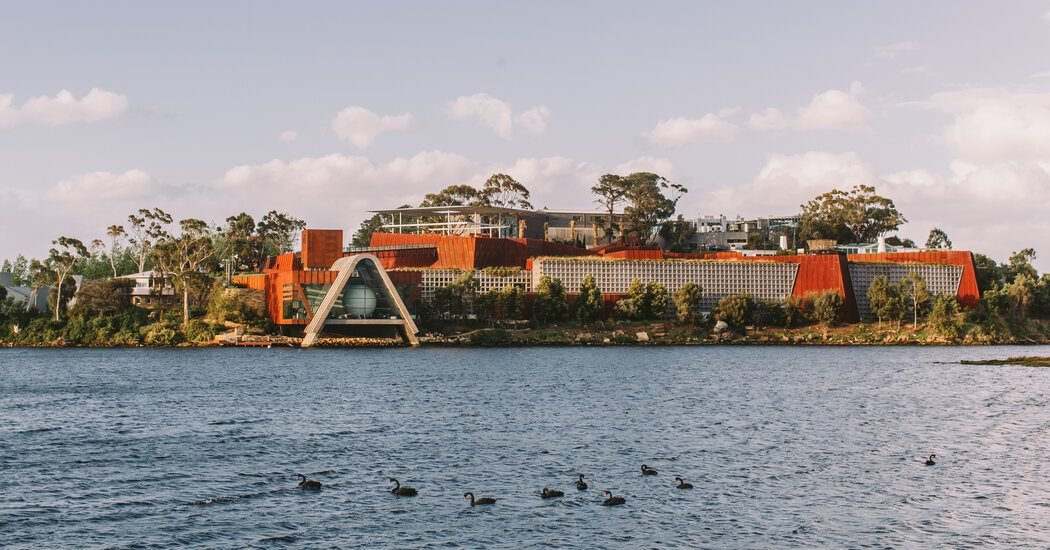When an Australian court ruled that a museum exhibition could not be exclusive to women, its curator decided to move the paintings to the women’s restroom.
The curator, Kirsha Kaechele, had opened the exhibition “Ladies Lounge” at the Museum of New and Old Art in Hobart, the capital of the Australian state of Tasmania, as a space where women could “indulge in decadent nibbles, fancy tipples and other ladylike pleasures.”
But the installation was shuttered in the spring, after the Tasmanian Civil and Administrative Tribunal found it to be discriminatory against men. Ms. Kaechele said at the time that the discrimination was part of the point, a nod to male-only spaces in Australia.
After the ruling, Ms. Kaechele decided to get creative and move parts of the installation — including several Picasso paintings — to a women’s restroom in the museum. The museum, which is owned by her husband, had only unisex bathrooms before this week, she said on social media. Ms. Kaechele has said she plans to appeal the ruling before the Supreme Court of Tasmania.
The bathroom art appears to include a painting from Picasso’s series of works inspired by Manet’s “Déjeuner sur l’Herbe.” There is also a drawing of a nude woman hanging over a toilet.
“I just didn’t know what to do with all those Picassos” from the original exhibition, Ms. Kaechele wrote on Instagram. In the same post, she promised to have the “Ladies Lounge” installation reopened under a different pretense that complied with Australia’s anti-discrimination act.
The museum could not immediately be reached for comment.
“Ladies Lounge,” which opened in 2020, was a nod to Australia’s history of gender discrimination. Women were barred from public bars until 1965 and even then were often relegated to the so-called ladies’ lounge.
The exhibition’s room was enclosed by green silk curtains and was guarded by an attendant who welcomed women but denied entry to men. Decorated with a black mink rug, green velvet furniture and a Venetian Murano chandelier, the room displayed antiquities, precious jewels owned by Ms. Kaechele and her family and the Picassos that now hang in the bathroom.
But when Jason Lau, a visitor to the museum, was denied entry in April 2023, he sued and said he had experienced gender discrimination. Ms. Kaechele brought 25 women with her to the tribunal hearing, all of whom wore a uniform of navy suits and pearls.
In an interview with The New York Times in March, Ms. Kaechele said that she agreed that Mr. Lau had faced discrimination, but that his experience was central to the work.
“Given the conceptual power of the artwork, and the value of the artworks inside the artwork, his detriment is real,” she said. “He’s at a loss.”
She added, “I’m not sorry.”
In April, the tribunal gave the museum 28 days to close, remove or reform the exhibit — or begin admitting men. In a blog post on the museum’s website in May, Ms. Kaechele said she was considering options for changes to the exhibition that would bring it into compliance, including turning it into a church.
The museum is no stranger to stunts. This month, it hosted a series of private listening events where visitors could sample a selection of a rare Wu-Tang Clan album that was not meant to be heard by the public until 2103.

